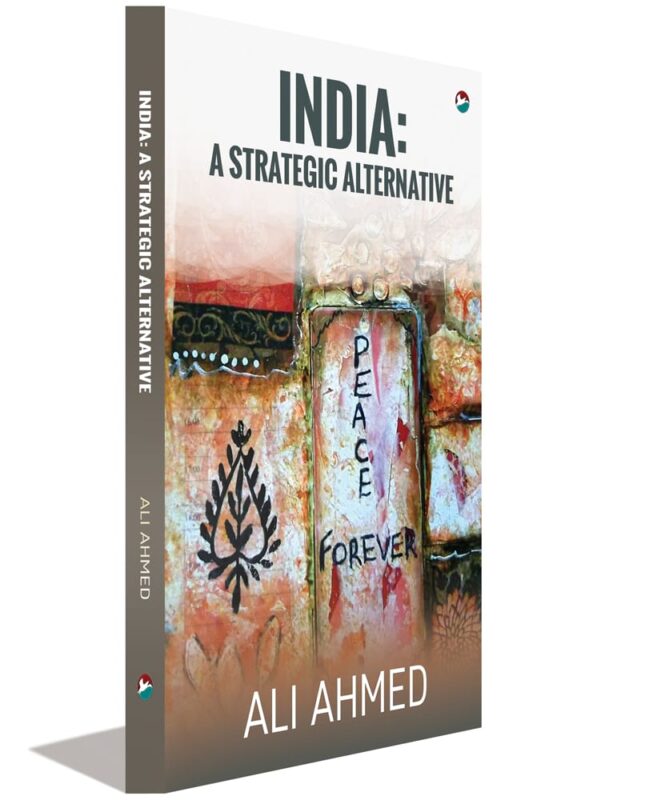http://indiatogether.org/what-nuclear-weapons-have-done-to-us-op-ed
What nuclear weapons have done to us?
Ordinarily the title would be ‘What nuclear weapons have done for us?’ Nuclear enthusiasts would have us believe that we are more secure now than we were twenty years ago, when in May 1998 India broke out of the nuclear closet, forcing Pakistan’s hand too by month end.
The nuclear optimists would point out that there has been no war since. Even Kargil war was not quite a war. Operation Parakram that soon followed remained short of being called a war. Mumbai 26/11 was not followed up with a war. Deterrence has worked, and that is what nuclear weapons are for.
That nuclear deterrence has worked is Pakistan’s side of the story. Though aggressors in Kargil, they escaped lightly by only been thrown back. They warded off Operation Parakram and deterred war after 26/11.
India would loathe to accept that it has been deterred. It would point to Kargil being vacated without the need to go to war. Operation Parakram was but coercive diplomacy. After 26/11, war would have hurt our economic interests which were already under threat from global depression setting in by then.
FOR FULL ARTICLE SEE http://indiatogether.org/what-nuclear-weapons-have-done-to-us-op-ed
India has been voluble, since it needs to convince Pakistan that it is not deterred by Pakistan introducing tactical nuclear weapons into the subcontinent. A rather elaborate seminar at the army’s think tank Center for Land Warfare Studies was held in February at which operations in a nuclear environment were discussed in all domains – land, air, sea. The first session was devoted to what Pakistan hopes to do with its tactical nuclear weapons.
Presumably the rest of the seminar was on pressing on with the war, after Pakistan’s nuclear first use and India’s nuclear retaliation. Since the nuclear dimension was not slated for discussion, it is uncertain if the nuclear response by India was as promised – ‘massive’. Instead, if military operations were to continue after introduction of nuclear weapons into the conflict, it would suggest a nuclear strategy in which India will respond proportionately to Pakistan’s nuclear use.
What this suggests is that war continues to be a possibility, twenty years since overt nuclearization.
FOR FULL ARTICLE SEE http://indiatogether.org/what-nuclear-weapons-have-done-to-us-op-ed
In short, nuclear weapons appear to have made little difference in resolving the outstanding problems. War could well have broken out, but for Pakistan’s nuclear weapons. India’s nuclear weapons were unusable in their intended manner of use – ‘massive’ retaliation. However, India seems to have thought up ways to increase their utility.
FOR FULL ARTICLE SEE http://indiatogether.org/what-nuclear-weapons-have-done-to-us-op-ed
A word about the China front is necessary since India cited the China threat as a cause for the Pokhran II tests. Twenty years of developments in missiles and nuclear submarines have not yet led to a reassuring second-strike capability, leaving India relatively vulnerable all through these years. Even so, India has stared down China twice over, at Chumar and lately at Doklam. In other words, India could be tough without nuclear weapons. Both India and China swear by No First Use – and India with good reason. It appears then that the China threat merely served as a cover for India to go nuclear for other reasons.
FOR FULL ARTICLE SEE http://indiatogether.org/what-nuclear-weapons-have-done-to-us-op-ed
In short, there is not much that nuclear weapons’ possession has done for India. But there is much that they have done to India. The need for their management has led to an accumulation of power at a power node - the National Security Adviser - that has no mention in the Constitution and has grave implications for a democratic system based on ministerial responsibility and cabinet accountability to parliament.
The power over the weapons is vested largely with the national security adviser (NSA), an individual who is appointed by an executive fiat. As seen from our meandering national security policy under the incumbent NSA – whether it be in relation to Pakistan, China, Kashmir or terrorism – individuals matter. National security management over the past four years has been ideologically driven. This does not lend confidence that nuclear weapon use will be informed by sound strategic thinking
It is no secret that India’s higher level defence structure is dysfunctional. NSA’s foray four years too late into some correction, through setting up of a defence planning committee, is chimerical since it is merely a measure to substitute for the chief of defence staff, a key figure missing in India’s system. As India appears to be moving towards nuclear warfighting, it needs a military man at the coordinating hub, not an NSA, and certainly not the current one with tactical brilliance but known deficit in strategic good sense.
In any case it is not only the Indian system that India needs worrying about. It stands to suffer as much from the pathologies of the system in Pakistan, which Indian strategists never fail to point out is rather vulnerable to threats ranging from jihadists to praetorian.
The twentieth anniversary is a good time to look at the usefulness of the nuclear weapons. They have not enhanced Indian security and instead the ongoing shift to making them more relevant to security by increasing their usability makes for an increase in Indian insecurity.
This brings to fore the more significant aspect of what nuclear weapons have done to us. They have been so normalized that any anti-nuclear movement is left to activists and to local opposition to nuclear plants. Indians have abdicated control over their own security and, indeed, destiny.
